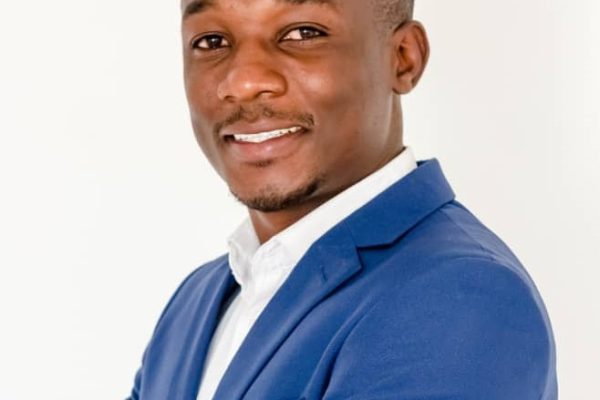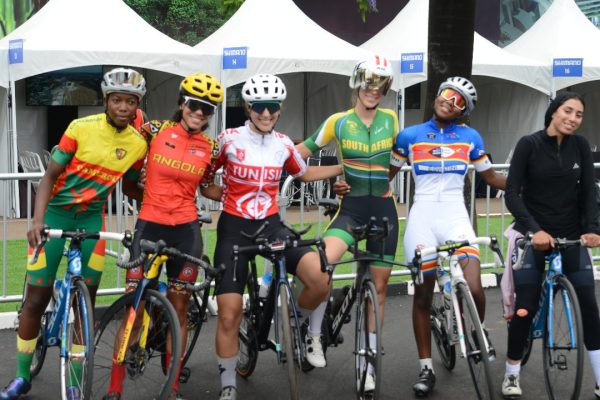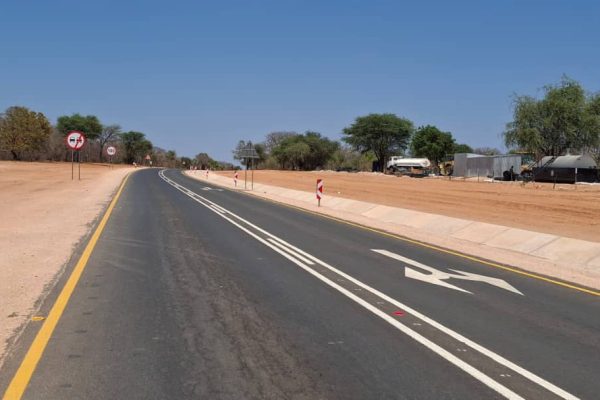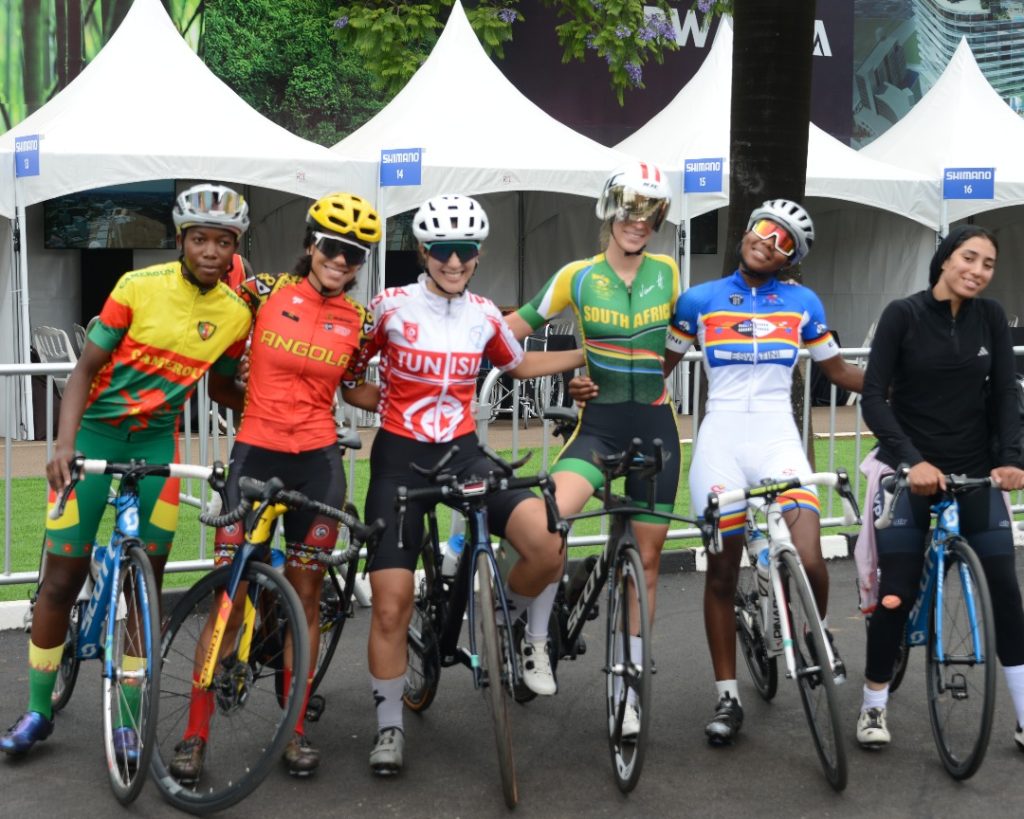
By: Hee-Dee Walenga
From 21-28 September 2025, Kigali, Rwanda made global sporting history by being the first African country to host an Union Cycliste Internationale (UCI) World Championship in the international body’s 125-year history.
The atmosphere in Kigali was electric from the onset, as was the pulpable excitement from locals, fans, and participants. It was clear that all parties involved, from Rwanda’s President, Paul Kagame, UCI President, David Lappartient, to cycling sensation and 2025 UCI Road World Champion Tadej Pogačar, and the local street vendor selling imbuto (fruit) knew they were living in a moment of history.
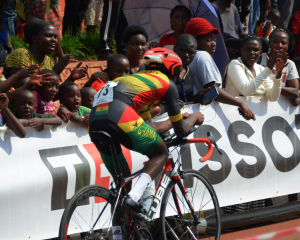
Lappartient told The Villager that Kigali delivered a memorable event. “You can see the passion, enthusiasm and expertise to organise the event. Kigali delivered a wonderful event,” he said.
The course in the “land of a thousand hills” was unlike any the competition has seen in its 98-year history, with the men’s elite race featuring 5,475 m of elevation on the 267.5 km track around Kigali. “The course was one of the toughest that I did,” said the world champion Pogačar.
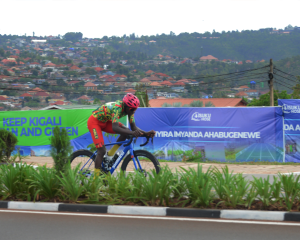
Since the event was hosted on African soil, it also consisted of a record number of African participating nations (36). Whilst that is indeed to be celebrated, it also highlights a predicament about not just the state of African cycling, but the state of African sport in the global context. It begs the question, how long will African athletes and teams be participants in global competitions instead of serious contenders? How long will we be happy to make up the overall numbers instead of the numbers on the podium? One might say it is time to stop rejoicing for participation trophies.
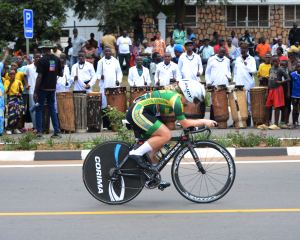
The only African cyclist to ever win a classification jersey at the prestigious Tour de France, Biniam Girmay from Eritrea, shared a similar sentiment during a press conference. “It’s not nice, to be honest. If you see the junior races, we (Africa) didn’t actually do anything. It’s nice to give us the opportunity, but it also doesn’t make sense to have us start the race and not finish,” he expressed.
Biniam was speaking moments after the men’s junior road race, where his 18-year -old countryman Efriem Nahom placed 11th. Nahom was the highest-placed African rider from the seven who finished the race. 32 African riders didn’t finish the race, meaning that 82% of African riders did not cross the finish line in the junior men’s race.
The numbers in the elite men’s race were even more bleak. 165 riders started the men’s elite race, with only 30 completing the gruelling 267.5km course. Of the 30 finishers, only one rider came from an African nation – Amanuel Ghebreigzabhier from Eritrea. Ghebreigzabhier was 1 of 21 African riders who started the race. Africa’s best performance came from Ethiopia’s Tsige Kiros, who put on an exceptional performance to finish 7th in the junior women’s race.
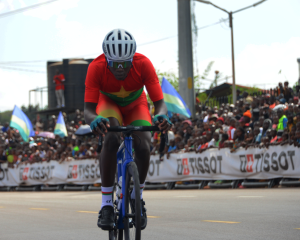
Girmay also suggested for European riders who change bikes at the end of every year to hand their bikes down to African riders who may not have the same resources. “If you want to compete at this level, you need to have everything,” he indicated. Girmay went on to explain that though he understands not everyone can have top of the line equipment, several African riders are missing the bare minimum to compete. Like many other sports, cycling is one where the teams/countries with the most resources and opportunities tend to perform the best.
The disparity in resources between a majority of the African riders and their international counterparts was clear for anyone to see. Seeing African riders give their all on what seemed to be their only road bikes whilst other nations zoomed by in the time trials on $12,000 aerodynamic time trial (TT) bikes – with spare bikes following them – was quite the eye-opener.
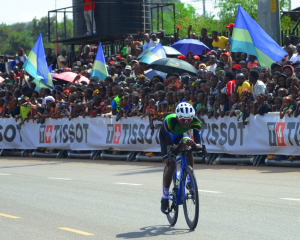
18-year-old Ghanaian, Farrakhan Shaaban Mohammed, who is the first Ghanaian to ever compete in the youth category at the UCI Road World Championships, told The Villager, “What we need is equipment. The equipment these guys are using is far ahead of us. When we get the equipment we can compete better,” the young Mohammed stated.
The U23 men’s race was another glaring example of the difference in skillset and opportunity between African and European riders. 18-year-old Italian, Lorenzo Finn, won the race to claim his second World Championship title, having won the junior men’s road race last year.
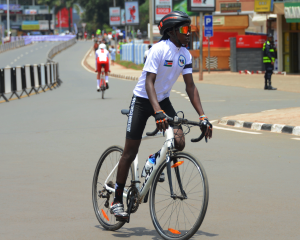
The young Italian is part of the Red Bull BORA development team, which is a UCI WorldTeam cycling team based in Europe, consisting of 50 riders who are all European nationals. No such team exists in Africa. Team Qhubeka NextHash was the last WorldTeam to be based in Africa. It disbanded in 2021.
Of course, Africa will not become a cycling and overall sporting powerhouse overnight. Hosting such prestigious global events is certainly a start. One can only hope that the 2025 UCI Road World Championship was the genesis of Africa producing serious contenders in decades to come.
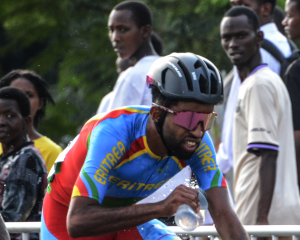
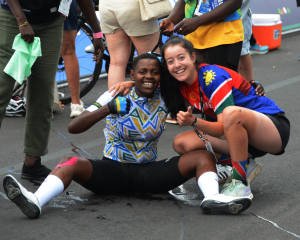
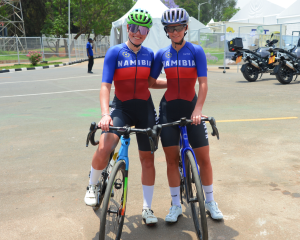
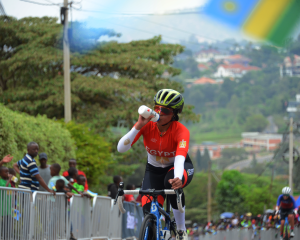
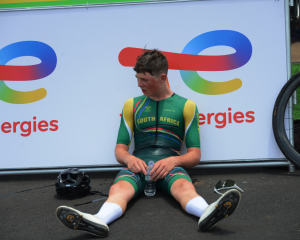
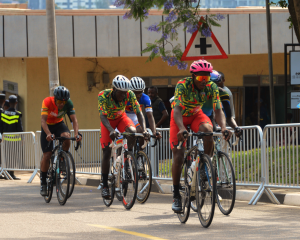
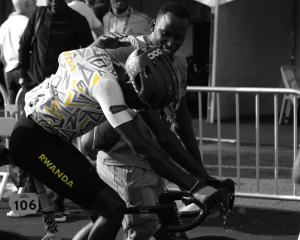
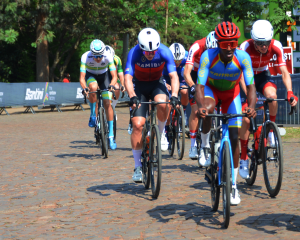
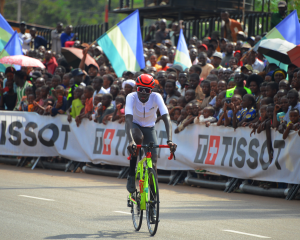
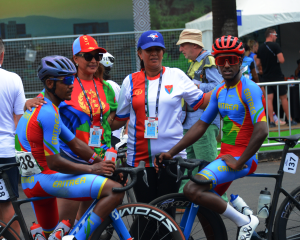
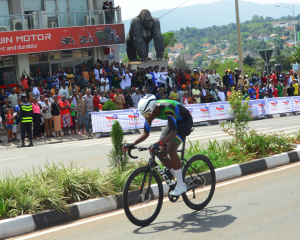
Photos: Hee-Dee Walenga

